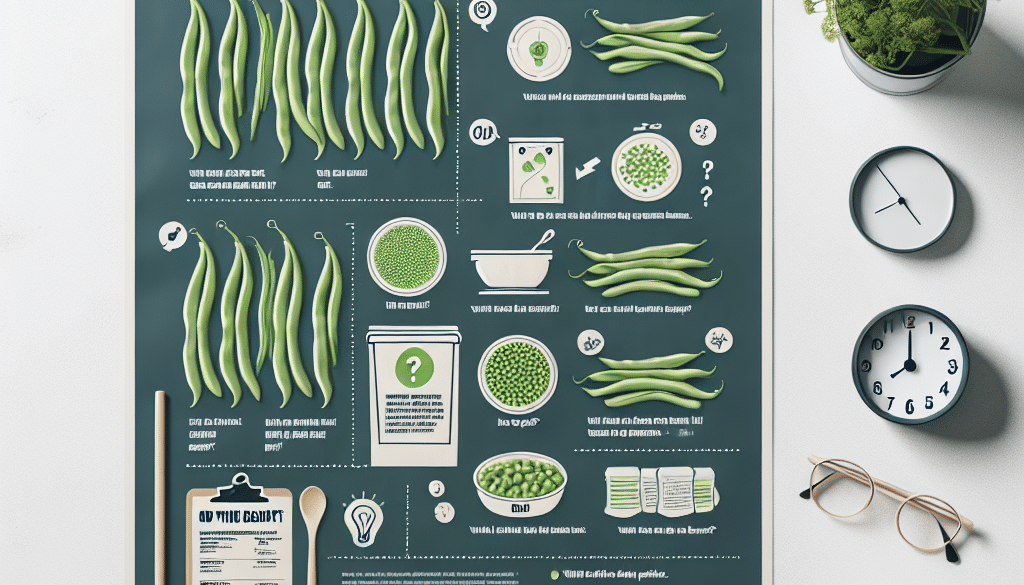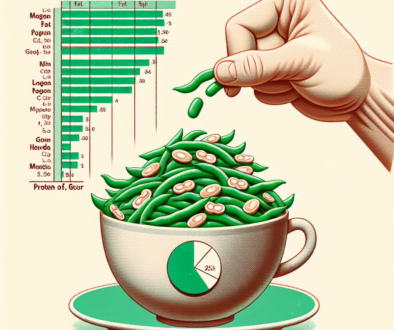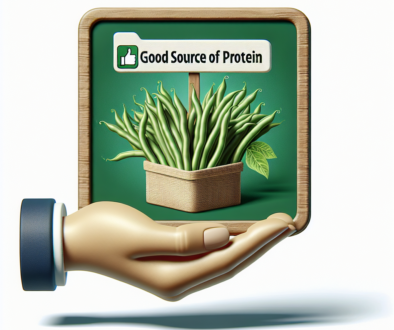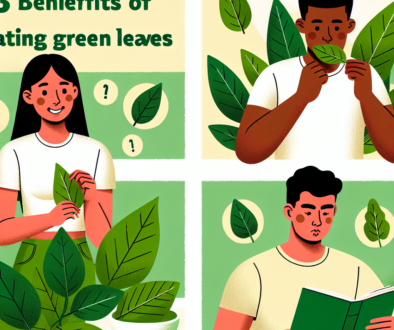When Should You Not Eat Green Beans?
-
Table of Contents
- Green Beans: When to Avoid Them in Your Diet
- Understanding the Nutritional Profile of Green Beans
- When to Avoid Green Beans
- Case Studies and Statistics
- How to Safely Include Green Beans in Your Diet
- Conclusion: Key Takeaways on Green Bean Consumption
- Discover ETprotein’s High-Quality Protein Products
Green Beans: When to Avoid Them in Your Diet
Green beans, also known as string beans or snap beans, are a staple in many diets around the world. They are known for their versatility in recipes, nutritional benefits, and the ease with which they can be grown in home gardens. However, there are certain situations and conditions under which the consumption of green beans should be avoided or limited. This article explores those scenarios in detail, providing valuable insights for those looking to maintain a healthy diet.
Understanding the Nutritional Profile of Green Beans
Before delving into when not to eat green beans, it’s important to understand their nutritional value. Green beans are low in calories and high in dietary fiber. They also contain essential nutrients such as vitamin C, vitamin K, vitamin A, manganese, folate, and potassium. Despite these benefits, there are times when green beans might not be the best choice for your meal.
When to Avoid Green Beans
- Presence of Lectins: Green beans contain lectins, a type of protein that can bind to cell membranes. While cooking typically neutralizes most lectins, consuming undercooked or raw green beans can lead to digestive discomfort and may pose a risk to individuals with sensitive stomachs.
- Individuals with G6PD Deficiency: Those with Glucose-6-phosphate dehydrogenase (G6PD) deficiency should avoid green beans. This genetic disorder affects red blood cell function, and consuming foods high in vitamin K, such as green beans, can trigger hemolytic anemia.
- During Certain Medications: If you are on blood-thinning medications like warfarin, it’s crucial to maintain a consistent intake of vitamin K. Since green beans are rich in this vitamin, sudden changes in consumption can affect medication efficacy.
- When They Are Spoiled: Consuming spoiled green beans can lead to food poisoning. Signs of spoilage include a slimy texture, an off smell, and discoloration. Always inspect green beans before eating to ensure they are fresh.
- When You Have Allergies: Although rare, some individuals may have an allergic reaction to green beans. If you experience symptoms like itching, hives, or difficulty breathing after consuming green beans, avoid them and consult a healthcare professional.
Case Studies and Statistics
While there is limited research specifically on green beans and adverse effects, studies on lectins and vitamin K provide insight into potential issues. For example, a study published in the “Journal of Agricultural and Food Chemistry” found that certain lectins in raw or undercooked beans can cause gastrointestinal issues. Additionally, the National Institutes of Health highlights the importance of vitamin K for blood clotting and how its inconsistent intake can interfere with anticoagulant drugs.
How to Safely Include Green Beans in Your Diet
To enjoy the benefits of green beans without the risks, follow these guidelines:
- Always cook green beans thoroughly to reduce lectin content.
- If you have G6PD deficiency, consult with a healthcare provider before adding green beans to your diet.
- Maintain a consistent intake of vitamin K-rich foods if you’re on blood thinners, and discuss any dietary changes with your doctor.
- Store green beans properly in the refrigerator and consume them before they spoil.
- If you suspect an allergy to green beans, get tested by an allergist to confirm.
Conclusion: Key Takeaways on Green Bean Consumption
In conclusion, while green beans are a nutritious addition to most diets, there are specific circumstances when they should be avoided. Pay attention to how they are prepared, be mindful of any health conditions that may contraindicate their consumption, and always ensure they are fresh and not spoiled. By following these guidelines, you can safely enjoy the health benefits of green beans without unnecessary risks.
Discover ETprotein’s High-Quality Protein Products
If you’re looking for alternative protein sources, especially if you need to avoid green beans or other legumes, ETprotein offers a range of organic bulk vegan proteins that could be a perfect fit for your dietary needs. Their products are non-GMO, allergen-free, and come with a neutral taste, making them an excellent addition to any diet.
ETprotein’s offerings include Organic rice protein, pea protein, and various seed proteins, all characterized by high purity and quality. Whether you’re involved in sports nutrition, weight management, or general health and wellness, ETprotein has a protein solution for you.
For more information or to sample their products, please contact ETprotein and email sales(at)ETprotein.com today.
About ETprotein:
ETprotein, a reputable protein and L-(+)-Ergothioneine (EGT) Chinese factory manufacturer and supplier, is renowned for producing, stocking, exporting, and delivering the highest quality organic bulk vegan proteins and L-(+)-Ergothioneine. They include Organic rice protein, clear rice protein, pea protein, clear pea protein, watermelon seed protein, pumpkin seed protein, sunflower seed protein, mung bean protein, peanut protein, and L-(+)-Ergothioneine EGT Pharmaceutical grade, L-(+)-Ergothioneine EGT food grade, L-(+)-Ergothioneine EGT cosmetic grade, L-(+)-Ergothioneine EGT reference grade and L-(+)-Ergothioneine EGT standard. Their offerings, characterized by a neutral taste, non-GMO, allergen-free attributes, with L-(+)-Ergothioneine purity over 98%, 99%, cater to a diverse range of industries. They serve nutraceutical, pharmaceutical, cosmeceutical, veterinary, as well as food and beverage finished product distributors, traders, and manufacturers across Europe, USA, Canada, Australia, Thailand, Japan, Korea, Brazil, and Chile, among others.
ETprotein specialization includes exporting and delivering tailor-made protein powder and finished nutritional supplements. Their extensive product range covers sectors like Food and Beverage, Sports Nutrition, Weight Management, Dietary Supplements, Health and Wellness Products, and Infant Formula, ensuring comprehensive solutions to meet all your protein needs.
As a trusted company by leading global food and beverage brands and Fortune 500 companies, ETprotein reinforces China’s reputation in the global arena. For more information or to sample their products, please contact them and email sales(at)ETprotein.com today.












